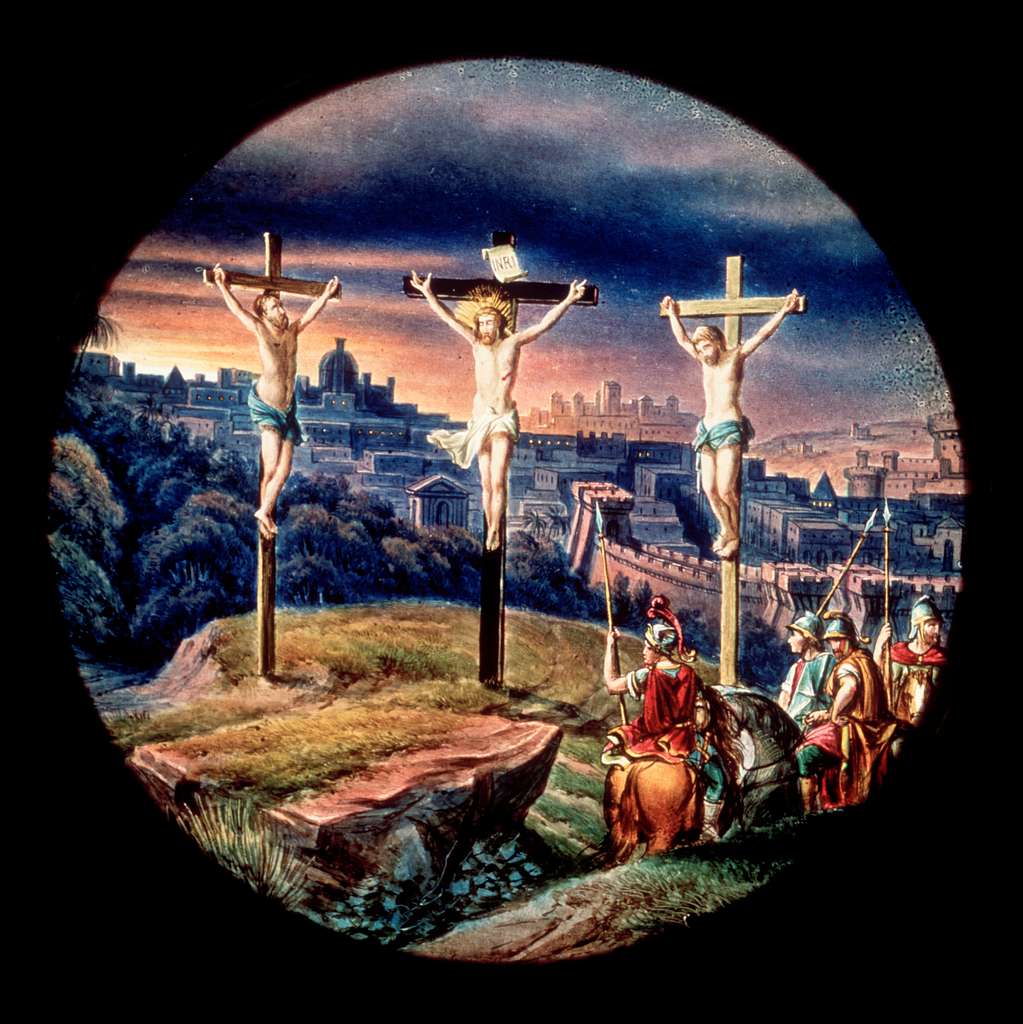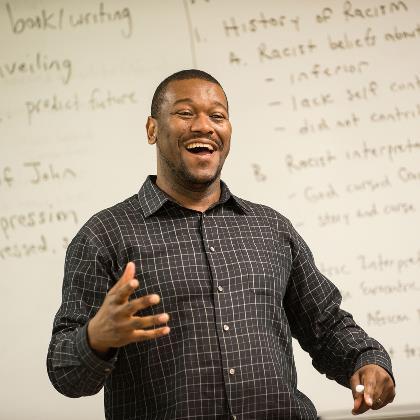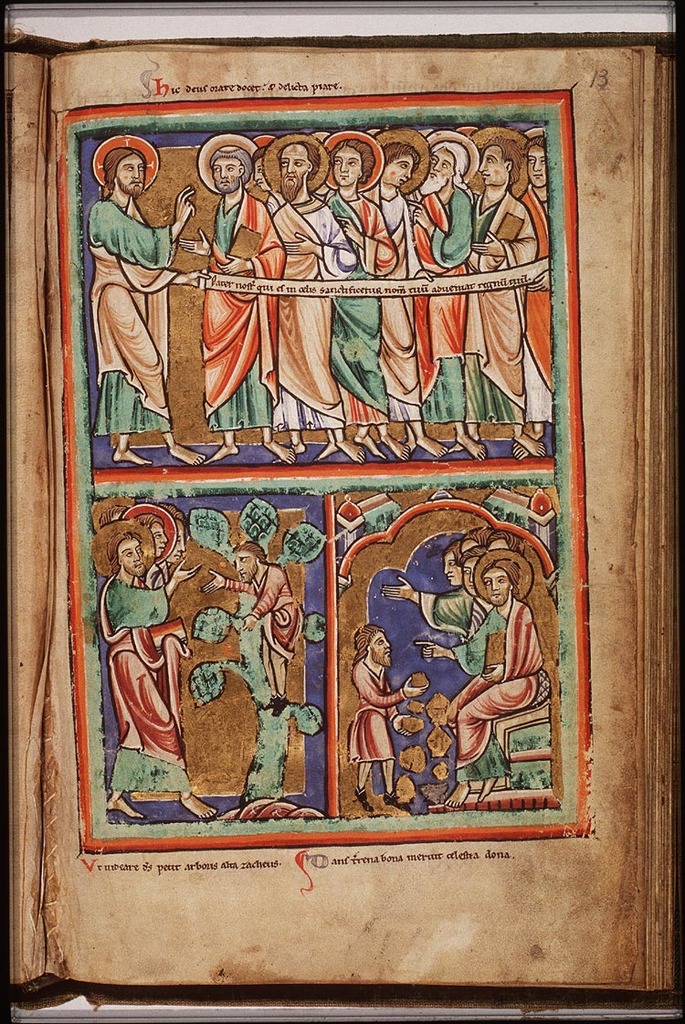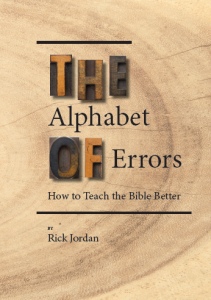If we think about why Jesus was killed, we might be uncomfortable with him. We might be uncomfortable with his teachings. And, if we teach what he taught and lived (which got him killed), our class members might be uncomfortable with us. Do we dare?

Let’s acknowledge that there are two different questions: Why was Jesus killed? Why did Jesus have to die? The latter question has to do with God’s love for the world, our rebellion against God, and God’s plan to make things right. Although there are many theories about redemption, justification, and atonement, we won’t have the whole story in this life. There remains much mystery.
Why Jesus was killed – that is no mystery. Religious leaders wanted him silenced. Political leaders wanted anyone who challenged the emperor’s role or divinity eliminated. These two groups of leaders found a common enemy in Jesus from Nazareth. The religious leaders pounded the trail and the political leaders pounded the nails.
Jesus made them uncomfortable.
I wonder if we are too comfortable with Jesus? We who teach the Bible point to Jesus as our model. Are our class members too comfortable with us, with our teachings?

I interviewed Lewis Brogdon, a black theologian and Biblical interpreter, this week. (The video will be on the blog later this summer.) Dr. Brogdon insists that we need to work on re-interpreting the gospels. If we understand the political and social context of that day (under the Roman Empire), we will need to re-read the gospels through the lens of systemic oppression and privilege.
For example, the word “poor.” We might unthinkingly define that as “someone with very little or no money.” That does not go far enough. Why are these people poor? Because the socio-political system keeps them that way. Widows were poor not because of laziness or bad character, but because the system gave women no power to earn their way out of poverty. Once a poor widow, always a poor widow. The same for slaves. The same for lepers. Once powerless, always powerless.

Jesus often spoke against the rich. We might initially think that “rich” means “someone with more than enough money.” That does not go far enough. Why are these people rich? Because the socio-political system gave them advantages. And, once they receive the rewards of this privilege, rich people want to hold on to their money and the power that comes with it.
Dr. Brogdon offers some fresh translations of Luke’s gospel in a recent article.1 Note how the rephrasing of a few words suddenly make those of us who have the advantages of being in the privileged majority feel uncomfortable with Jesus’s words.
The story of the “rich young ruler” (18:18-30) “‘Sell everything you have and give up your privilege.’ … When he heard this, he was very sad, because he was very privileged. Jesus looked at him and said, ‘How hard it is for the privileged to enter the kingdom of God!’”
A question for the Bible study leader: Do we dare challenge our class members’ attitudes about privilege?
The story of the rich fool (12:13-21) – Jesus “said to them, ‘Watch out! Be on your guard against all kinds of privilege; life does not consist in an abundance of benefits privilege affords you.’ Then he told them a story… [about a rich man who hoards his wealth and faces a sudden death] ‘This is how it will be with whoever hoards resources for himself and keeps others from experiencing the same opportunities you were given but is not rich toward God.’”
A question for the Bible study leader: Do we dare challenge our class members’ attitudes about abundance?

Zacchaeus (19:1-10) – “Zacchaeus was a chief tax collector and was very privileged…But Zacchaeus stood up and said to the Lord, ‘Look, Lord! Here and now I give half of my wealth to the oppressed, and if I have cheated anybody of anything, I will give reparations to them, four times as much as was taken.’ Jesus said to him, ‘Today salvation has come to this house.’”
A question for the Bible study leader: Do we dare challenge our class members’ attitudes about reparations and the relinquishment of privilege for the sake of God’s children who are powerless and underprivileged?
I’m all for our class members leaving the classroom feeling affirmed as beloved children of God and also feeling embraced by a fellowship of believers. But shouldn’t they sometimes leave our class saying, “Wow, following Jesus is going to be harder than I thought?”
If we promote Jesus’s radical, life-threatening teachings, shouldn’t someone feel uncomfortable?
- “The Gospel of Luke and the Issue of Privilege: Using Context to Re-read Luke to Address Systemic Racism”, Christian Ethics Today, Vol 28, No 2, Spring 2019, 11-20. [↩]

